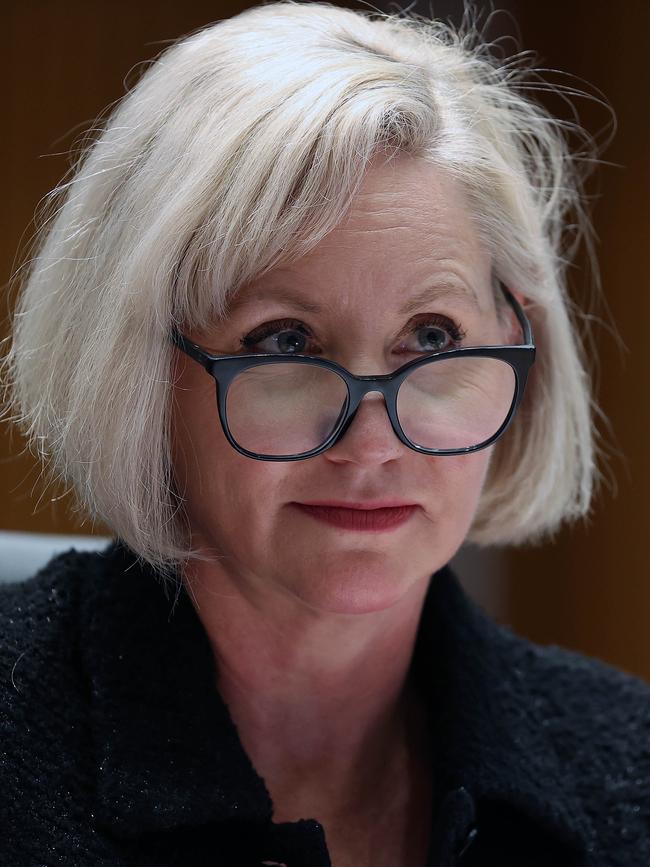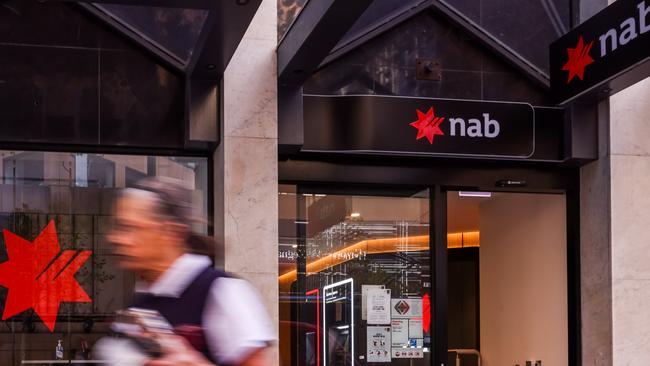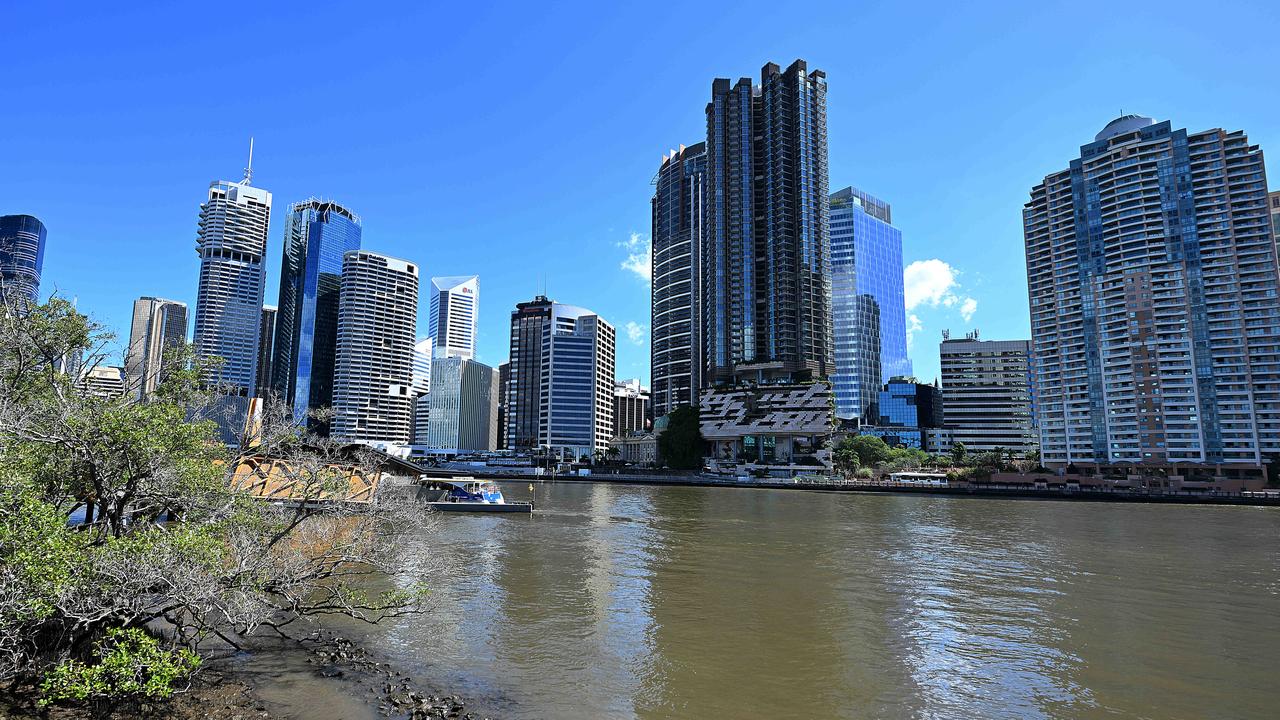How Austrac became the feared cop on a dirty beat
A string of legal actions has exposed casinos as the effective bankers for crime, undermining efforts by the real banks to protect the financial system.

Business
Don't miss out on the headlines from Business. Followed categories will be added to My News.
Financial crimes regulator Austrac has become the nation’s de facto gaming watchdog with major legal actions now on foot covering each of the top three casino operators in Australia.
This comes on top of a busy year for the low-profile Austrac which has an investigation under way on the local arm of bookmakers Neds and Ladbrokes’ owner as well as ordering external auditors be appointed to another gaming operator, Sportsbet. In short, Austrac head Nicole Rose – a former top cop – has sent a message: if you are in the business of handling large sums of cash and can’t trace the source, your business could be next.

Heat is now coming on pubs and suburban clubs with Austrac undertaking targeted supervision of the sector. Larger clubs which turn over hundreds of millions of dollars annually have little controls and, Austrac suspects, are a haven for washing cash.
Austrac’s legal action against Adelaide’s SkyCity casino comes just a week after it launched a mammoth action against Star Entertainment which operates casinos in Sydney, Brisbane and the Gold Coast. It kicked off the process in March by launching a major action against Crown, the nation’s biggest casino operator.
Austrac has exposed a pattern of casinos being the effective bankers for crime and the ease in getting funds in and out of the country under the radar. Indeed, the alleged behaviour of the nation’s big casinos has undermined the billions of dollars in compliance spending by the nation’s banks in protecting against laundering proceeds of crime.
Casinos are monitored by local police and state-based gaming authorities and it’s these timid local regulators that for years have been missing in action.
Like Star, Austrac alleges SkyCity dropped the ball over protecting against money laundering. It also alleges little effort was made for the casino to know its customers who were pumping millions of dollars through the gaming tables.
This created a situation where $4bn may have washed through Adelaide’s casino from 2016 across just a few dozen customers. Losses racked up by these 59 customers amounted to just $74m.
“SCA (SkyCity Adelaide) chose to continue business relationships with these high-risk customers, including high-value customers with reported links to organised crime,” Austrac said.
SkyCity is owned by Auckland’s Sky City Entertainment and is listed on the ASX. Shares in Sky City fell 2.7 per cent at $2.52, as shareholders braced for the prospect of heavy penalties. Austrac has not quantified damages.
Dirty cash
Some of the cash coming through SkyCity’s systems literally was dirty, Austrac says.
Many high-risk customers “engaged in large cash transactions and transacted with cash that appeared suspicious including in plastic bags, garbage bags, cash bundled together with rubber bands or irregular straps, cash that was dirty and cash that appeared to have been buried”.
Players were betting millions of dollars with no indication of the source of funds and many risky customers engaged in transactions typical of money laundering, including cashing in large-value chips with no evidence of play, and quick turnover of funds
The key difference between the smaller SkyCity and Star is that it appears the Adelaide casino simply didn’t have the depth or sophisticated systems to challenge potential crooks.
On a generous reading, the casino’s board and management didn’t draw the dots together to connect suspicious characters with suspicious play. Here it was lacking controls or the basic governance to monitor funds or counter the risks associated with handling large sums of cash.

The casino, according to Austrac, failed in key areas, including allowing cash to move in and out of the casino through remittances which, in turn, exposed the banking system to dirty cash.
It failed to understand the source of funds coming into the casino and the people making the deposits. Of concern was that it allowed funds deposited in SkyCity gaming accounts and transferred to offshore bank accounts where it could be remitted to third parties, including junket operators.
It was only last November that SkyCity put in place a significant anti-money laundering program for its Adelaide casino.
Last week’s claims against Star show the scale of the problem is potentially more significant. According to the Austrac allegations, Star knew and was actively tipped off about bad actors but deliberately sought to circumnavigate the rules.
Feeling the pinch
Hit by a year of successive cash rate hikes businesses are becoming cautious, which is a worry for the Reserve Bank as it seeks to engineer a soft landing. Andrew Irvine, who heads up NAB’s business bank, has warned this week’s cash rate rise will “add to the pinch” on consumers and businesses before the holiday season. “Customers are absolutely becoming more cautious. And confidence has abated,” he tells The Australian. That means business customers are starting to slow down activity, and many are taking longer to move ahead with transactions or borrow money to build out capacity.
Irvine oversees a business banking loan book of $132bn, making it the nation’s biggest lender to small and mid-sized businesses. This sector remains an important barometer for the health of the economy and is a major driver of jobs growth.
Even with rapid rate rises he says there are no signs of lending stress with businesses still investing in industrial capacity, warehouses or stock.
“They’re still adding labour where they can find it. But they’re doing it with extra care and diligence, knowing that next year might be tougher. There’s just more prudence in the system.”
NAB has called out concerns around manufacturing and transport being disproportionately impacted by rising energy costs with some businesses unable to pass on the higher costs. At the same time rising rates are expected to be felt by retailers with household spending set to pull back.
The good news is Australia’s economy remains in boomtime conditions with plenty of momentum heading into the new year. New figures released by the ABS showed real GDP increased 0.6 per cent over the September quarter to be up a fast-paced 5.9 per cent on year ago levels.

Economic growth is expected to start a slowdown as the cash rate this week crossed the 3 per cent mark. One area to watch is household savings with more people drawing on their cash pile built up during the pandemic. The household savings ratio fell to 6.9 per cent from 8.3 per cent, the ABS figures showed.
Markets are pricing the cash rate to peak at 3.6 per cent, although some economists are tipping rates hit 3.85 per cent.
On the positive side Irvine says his customers are reporting supply restrictions are easing, with stock becoming readily available. This will also help in the fight against inflation.
The bright spot for business is that loans are priced on swap rates which are driven by futures markets, not the official cash rate used as a benchmark for mortgages. This means businesses will see the benefit of the market pricing in an eventual rate cut possibly into 2024, well before households.
Irvine is tipping Australia’s growth to slow to about 1 per cent next year, giving the RBA a narrow field to pull off a soft landing.
Even so, that’s going to be a standout performance in what is shaping up to be a low growth world. “Today, the northern hemisphere is either in recession or hurtling towards one with higher inflation than we have. So Australia is about as good as it gets in the global economy,” Irvine says.
johnstone@theaustralian.com.au
Originally published as How Austrac became the feared cop on a dirty beat



